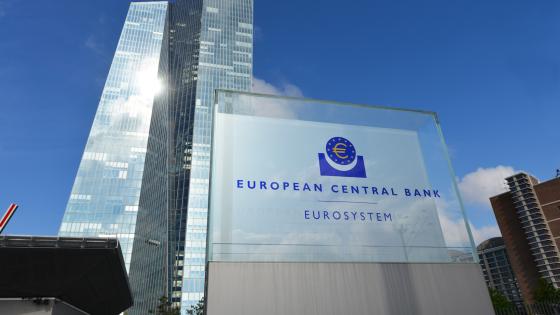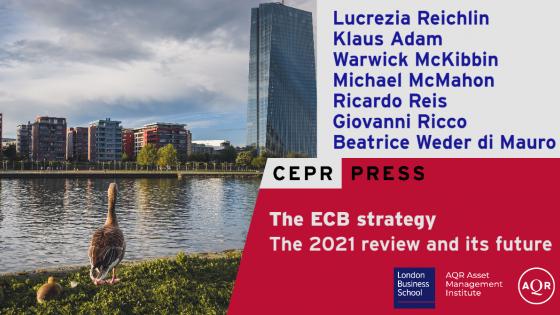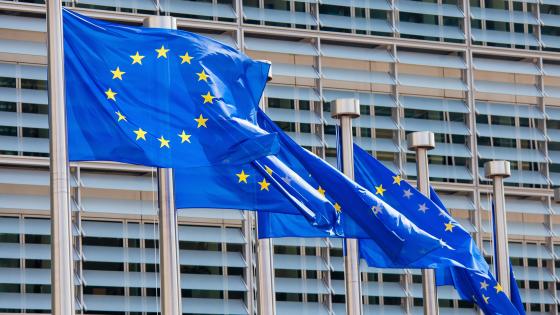Monetary policy has a central role in enhancing economic resilience and stability. Indeed, the statutory duty of the ECB to maintain price stability places this front and centre as the core mission of monetary policy in the euro area.
A good deal of criticism claiming that central banks acted too late and too cautiously to contain the rapidly surging inflation starting from late 2021 has been voiced (Darvas and Martins 2022). More recent criticism claims that central banks are reacting too hastily and too forcefully, and supposedly risk pushing economies into a recession.
In late 2021, one could still have thought that the rapid rise in inflation would, even if prolonged, still probably be transitory over the medium term. Normally, supply-side shocks like the bottlenecks in global value chains and the leap in energy prices would be deemed temporary and passed over in monetary policy.
However, since the start of Russia’s illegal, brutal war in Ukraine on 24 February 2022, this assumption regarding the temporary or transitory nature of the inflation shock has had to be thrown onto the scrapheap. This is especially true in Europe, where imported fossil energy from Russia has played a regrettably large role, justifying certain prudence in policymaking.
The cost of the euro area’s imported energy increased last year by some €400 billion, that is, by around 3–4% relative to GDP. Although some of the costs are transferred to export products, the energy price increase is weakening the euro area current account, consumer purchasing power, and company balance sheets. This means a significant and possibly long-term cut in the average European's standard of living.
The monetary policy response to this depends, at least partly, on the assumptions made about the reactions of price and wage setters to these developments. While the hefty price increases began with energy prices, more concerning, at least from the monetary policymaker’s perspective, is that inflation has spread across the entire economy – to virtually all products and services.
That’s why the ECB Governing Council has been tightening monetary policy since July 2022 by raising key policy rates and by deciding to gradually start reducing its bond holdings from March 2023 onwards. The sequence of decisions is in line with the ECB’s consistent process of monetary policy normalisation, which the Governing Council started over a year ago in December 2021.
The Governing Council decided a month ago, in December 2022, to raise the three key ECB policy rates by 50 basis points. The deposit facility rate has thus been increased altogether from -0.5% to the current level of 2%.
Policy rates will still have to rise significantly to reach levels that are sufficiently restrictive to ensure a timely return of inflation to the 2% medium-term target. Thus, we will stay the course. Ceteris paribus, this means significant rate hikes in the following meetings – on a meeting-by-meeting basis depending on the incoming data and changes in the outlook.
Raising interest rates to restrictive levels will, over time, reduce inflation by dampening demand and, more importantly, will also guard against the risk of a persistent upward shift in inflation expectations.
But the near term is shrouded in uncertainty, and we need to keep an open mind to adjust our policies if needed. What we know for sure is that when supply factors constrain the economy, expansionary fiscal policy will lead to a rise in prices and costs, which makes our job more demanding.
As noted, there have been voices declaring – especially in retrospect – that the ECB should have hiked its rates earlier, and that frontloading should have been more forceful. With the benefit of hindsight, there may be some truth in this argument, not least from the standpoint that we could thus have created more policy space to react if the euro area economy falls into recession. I say this with the caveat that immediately after the Russian invasion during the late winter last year, there was pervasive uncertainty about the economic ramifications of Russia’s war in Ukraine, which justified a certain prudence in policymaking.
Anyway, by acting swiftly now, we should be able to avoid what is often called a ‘Volcker shock’, which harks back to his rigorous disinflationary policies of the early 1980s that had become necessary in that context to stifle the stubborn, galloping inflation inherited from the 1960s and 1970s.
But policy is always made in the context of time and place – today is not 1981, or even 1974. Following the long years of stagflation in the 1970s, excessively high inflation became entrenched, and the return to price stability required strong disinflationary measures at the cost of a severe recession. One reason for the prolonged stagflation was that the central banks were not independent.
Following the global financial crisis, we had a lengthy period of low inflation, and longer- and medium-term inflation expectations are still relatively well anchored. Our task is to maintain this by making strong enough moves now, so that we can avoid a highly restrictive monetary policy shock in the future. Unlike the 1970s, today we have independent central banks – and we’ll do what we gotta do to tame inflation, rationally.
References
Darvas, Z and C Martins (2022), The ECB’s monetary tightening: a belated start under uncertainty”, publication for the Committee on Economic and Monetary Affairs, Policy Department for Economic, Scientific and Quality of Life Policies, European Parliament.
Yueei Ji, Y and P De Grauwe (2022), “Trust and monetary policy”, VoxEU.org, 2 April.



